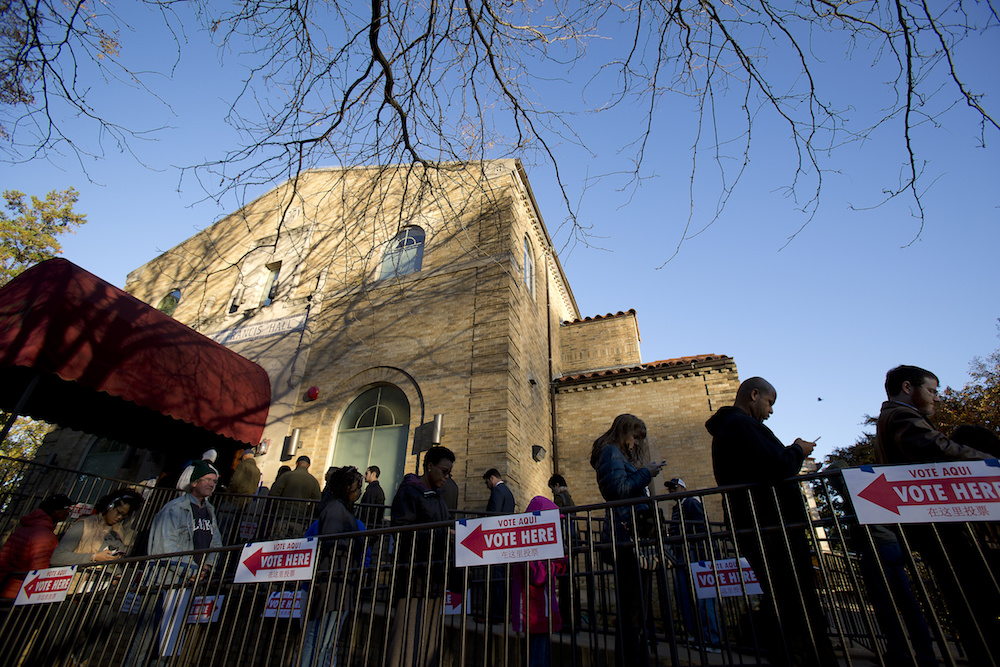The midterm elections Nov. 6 can be the time to "throw the rascals out" and send a message to the nation's leaders on how they are doing as Republicans and Democrats battle for control of Congress.
But Catholic voters should see the elections as a chance to research candidates and issues, educate themselves on Catholic social teaching and be sure they are voting with well-formed consciences, according to clergy and lay leaders of the Diocese of Baton Rouge.
A resource Catholics can use when deciding how to cast their ballot is "Forming Consciences for Faithful Citizenship: A Call to Political Responsibility" by the U.S. Conference of Catholic Bishops, said Rob Tasman, executive director of the Louisiana Conference of Catholic Bishops.
"I think it's important for all Catholics to keep in mind that as the document from the bishops states, participating in the political process is not just a responsibility, but it is an obligation," Tasman told The Catholic Commentator, newspaper of the Diocese of Baton Rouge.
"And I find that to be a very strong statement," he added.
He said people of faith need to act on their faith "even in the voting booth, even in the political world where many times it's messy, it's confusing and it's certainly not clear in terms of candidates reflecting their own faith in the way that they pursue issues."
He said one guideline is the seven principals of Catholic social teaching when deciding which candidates and issues to support: life and dignity of the human person; the call to family, community and participation; rights and responsibilities; option for the option for the poor and vulnerable; the dignity of work and the right of workers; and solidarity for God's creation.
"When individuals look at these different political issues, I think it's very important that they view those through the lens of the principles of Catholic teaching as opposed to partisan politics," said Tasman.
He noted that it takes a fair amount of work for the well-informed voter to be able to look at a candidate and know where he or she stands on issues such as abortion, living wages and immigration.
One place people can go to for information includes the candidates' websites. Also, if a candidate is an elected official, people can consult their voting record on issues or look at outside sources. In Louisiana, one such source is the website of Louisiana Right to Life, prolifelouisiana.org.
Unfortunately, recent elections have involved a lot of negativity and conflict rather than compromise and collegiality, Tasman said.
"But I wouldn't want folks to be able to lose the sense of their own responsibility and the value of their own voice in the process. And I think that it's important to remember we are a nation in which we are truly blessed to have the ability to go to the polls to participate in the political process that we have and really truly feel it in the knowledge that our vote counts," he said.
Father Jeff Bayhi, pastor of St. John the Baptist Church in Zachary, urged voters not to base their vote on a candidate's personality.
The sanctity of life should be the top concern of voters, he said.
He also encouraged people to look at how candidates address issues such as religious liberty and justice, noting that justice includes having fair immigration laws that also protect people already living in this country.
Although people may be disgusted with the state of politics, he said voting has the power to make changes.
"In a democracy, we change things one vote at a time. Rather than being quiet, make your voice known," he said.
Debbie Shelley is assistant editor of The Catholic Commentator, newspaper of the Diocese of Baton Rouge.

